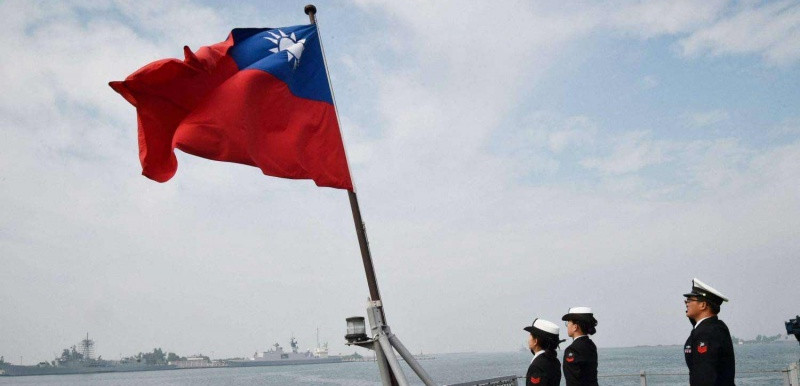For decades, Beijing saw Taipei as part of its territory, despite it being independently governed since 1949.
Taiwan has condemned Qatar’s World Cup organisers for listing the country as “Taiwan, Province of China” on its Hayya card online application, Reuters reported on Wednesday.
Taiwan’s Foreign Ministry spokeswoman Joanne Ou slammed the listing, saying it is “unacceptable to belittle” her country, calling on the Supreme Committee for Delivery & Legacy (SC) to immediately correct the issue on its official website.
“The Foreign Ministry again calls on the organisers of the World Cup to not allow improper political factors to interfere with simple sports activities and tarnish sporting venues that value fair competition and emphasise the spirit of the athletes,” said the Taiwanese diplomat.
The listing of Taiwanese nationals on the website, which does include Taiwan’s flag, has caused fury in the democratically-governed country, given ongoing political tensions with China.
For decades, Beijing saw Taipei as part of its territory, despite it being independently governed since 1949.
Commenting on the categorisation, the Taiwanese official demanded that the World Cup organisers to not allow “improper political factors” to get in the way of such sporting events.
Meanwhile, a senior Qatari official told Reuters that people from Taiwan were likely to be listed as being Chinese. Like most countries, Qatar has no diplomatic ties with Taiwan and recognises the Chinese government, as Reuters reported.
Qatari authorities and the SC have yet to respond to Doha News’ request for a comment on the matter.
Chinese foreign ministry spokesman Wang Wenbin commented on the issue in a press briefing in Beijing on Wednesday.
“Maintaining the one China principle is a basic norm of international relations and is the widely held consensus of the international community,” Wang told reporters.
The Hayya card, or FIFA ID, is mandatory for people wishing to attend World Cup matches in Qatar, which will in turn facilitate entry visas for international visitors.
The card will also enable entry to stadiums and provide a variety of privileges, including free public transportation during match days.
Decades of tensions
The controversy has amplified decades of tensions between China and Taiwan over the latter’s status, with the former vowing to “unify” the island with the People’s Republic of China (PRC).
Home to 23 million people, Taiwan has its own democratically elected government. There have been fears over possible Chinese attacks on Taipei, with Beijing flying fighter jets near the island.
In 2020, Taiwan accused China of breaching its privacy by hacking into at least 10 Taiwanese government agencies and 6,000 official email accounts since 2018. Cyber attacks occurred during Taiwan’s 2020 elections, in which disinformation campaigns were launched on social media.
In an effort to apply further pressure on Taiwan, China restricted tourism to the island, leading to a significant drop of tourists from more than four million in 2015 to 2.7 million in 2019.
Seeking to influence the global perception of Taiwan, China intimidated countries that had ties with Taipei, including Lithuania. In 2021, Beijing severed trade with Vilnius after it opened a Taiwanese representative office.
On Sunday, Chinese defence minister Wei Fenghe said that the Asian country “will fight at all costs” all who “dare to secede Taiwan from China.”
Despite the several attempts to undermine Taiwan’s sovereignty, it ranked as the world’s eight-most-democratic country in 2021 by the Economist Intelligence Unit’s Democracy Index.
In sports, Taiwan competes in global events including the Olympics as “Chinese Taipei” in an effort to avoid issues with Beijing.







